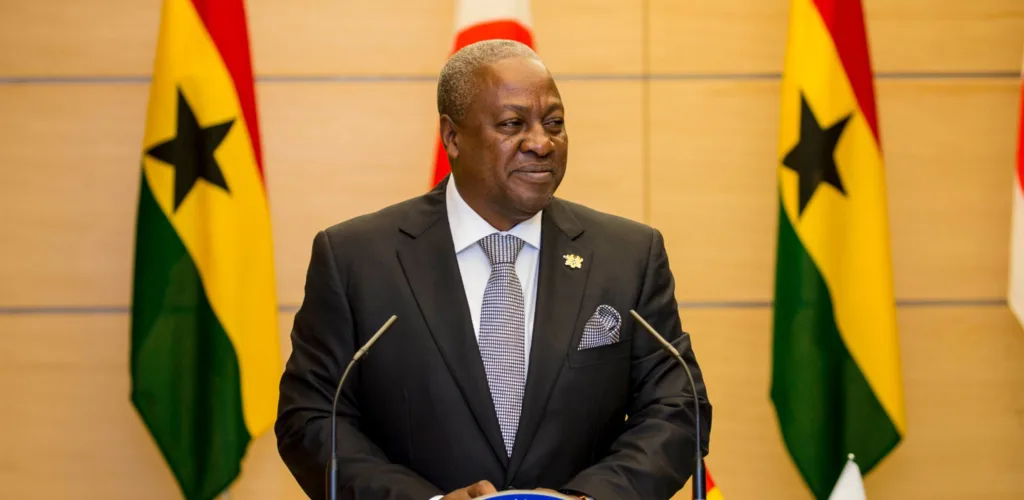MF Commends Ghana’s Bold Fiscal Reforms Following Staff-Level Agreement on $370M Funding
Ghana Secures Fourth IMF Review Approval After Demonstrating Renewed Fiscal Discipline
The International Monetary Fund (IMF) has delivered a strong vote of confidence in Ghana’s economic management, praising the government for implementing “bold corrective steps” to reverse fiscal slippages and realign with the objectives of the US$3 billion Extended Credit Facility (ECF) program.
This positive assessment follows the conclusion of a comprehensive two-week IMF staff mission to Accra, led by Mission Chief Stéphane Roudet. The mission culminated in a staff-level agreement on the fourth review of Ghana’s economic program, effectively clearing the path for the disbursement of approximately US$370 million in financial support.
“This represents a crucial milestone in Ghana’s economic recovery journey,” says Dr. Kwesi Botchwey, former Finance Minister and senior fellow at the Center for Economic Policy Analysis. “The IMF’s endorsement signals growing confidence in Ghana’s fiscal management approach under challenging global conditions.”
New Administration’s Fiscal Strategy Earns IMF Recognition
Addressing Previous Policy Slippages
In its official statement, the IMF acknowledged a significant shift in fiscal discipline under Ghana’s new administration, highlighting concerted efforts to correct earlier deviations from program targets that had threatened to derail the country’s economic stabilization efforts.
“Against this backdrop, the new authorities have taken bold measures to address policy slippages and ensure the program objectives remain within reach,” the IMF stated, marking a notable improvement in Ghana’s fiscal performance trajectory.
Audit of Government Payables Underway
The Fund revealed that a comprehensive audit has been launched to verify the size and nature of unpaid government bills (payables), which had contributed to a primary deficit of approximately 3.25% of GDP—significantly off the targeted surplus of 0.5% established under the ECF program benchmarks.
According to Ghana’s Ministry of Finance, these unpaid obligations have been a persistent challenge to fiscal consolidation efforts and transparent budget management.
Ghana’s 2025 Budget: Targeting Fiscal Surplus and Enhanced Management
To tackle the identified fiscal challenges, the government has introduced an ambitious 2025 budget targeting a primary surplus of 1.5% of GDP, while simultaneously implementing key public financial management reforms designed to enhance fiscal discipline and transparency.
New Fiscal Responsibility Framework
“These include an enhanced fiscal responsibility framework and new rules to tighten expenditure commitments,” the IMF statement added, highlighting the structural reforms being implemented alongside fiscal consolidation measures.
These reforms align with recommendations from institutions like the World Bank and the African Development Bank, which have consistently advocated for stronger fiscal governance mechanisms in Ghana.
Impact on Ghana’s Debt Sustainability
The staff-level agreement brings Ghana significantly closer to receiving the next tranche of IMF funding under the ECF program, which was initially approved in May 2023 with the primary aim of supporting macroeconomic stability and debt sustainability in the West African nation.
“This progress is particularly important for Ghana’s ongoing debt restructuring efforts,” explains Professor Nana Asante of the University of Ghana’s Economics Department. “Continued IMF support strengthens Ghana’s position in discussions with external creditors and helps restore market confidence.”
What’s Next for Ghana’s Economic Recovery Programme?
The staff-level agreement now awaits final approval by the IMF Executive Board, which is expected to review Ghana’s case in the coming weeks. Upon approval, the approximately US$370 million disbursement will boost Ghana’s foreign exchange reserves and support ongoing economic reforms.
Key Areas for Continued Progress
For Ghana to maintain this positive momentum, economic analysts highlight several priority areas:
- Consistent implementation of the fiscal consolidation measures outlined in the 2025 budget
- Completion and transparent reporting of the audit of government payables
- Further strengthening of public financial management systems
- Continued progress on structural reforms in the energy sector
- Maintaining social protection programs amid fiscal adjustment

Ghana’s Economic Outlook Amid Global Challenges
Despite facing significant global headwinds, including tightening financial conditions and geopolitical uncertainties, Ghana’s renewed commitment to fiscal discipline positions the country more favorably for sustainable economic recovery.



